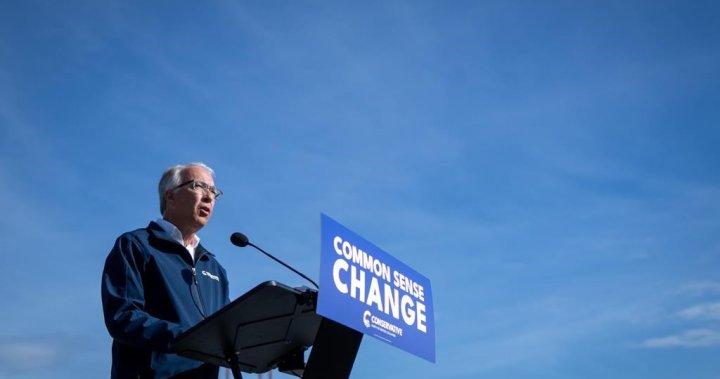The whispers filling British Columbia’s legislative corridors have grown louder in recent weeks. The provincial Conservative Party, once a marginal political force, now faces internal tensions that could determine its future relevance in BC’s political landscape.
Having secured three seats in the last provincial election—a modest but significant achievement—the party now grapples with an identity crisis that many insiders describe as a battle between populist firebrands and pragmatic moderates.
“We’re seeing the natural growing pains of a party finding its place,” explains Dr. Samantha Chen, political scientist at the University of British Columbia. “The question is whether they can contain these tensions or if they’ll fracture along ideological lines.”
The divide became publicly visible during last month’s policy convention in Kelowna. What was meant to be a unity showcase instead highlighted deep philosophical differences when party members debated their platform on resource development, housing affordability, and relationships with Indigenous communities.
Party leader John Peterson attempted to downplay the divisions. “Every healthy political movement has robust internal debates,” he told reporters after the convention. “We’re building a big tent that welcomes diverse conservative perspectives.”
But the tent may be stretching at the seams. Sources within the party, speaking on condition of anonymity, describe heated closed-door meetings where the populist wing pushed for more aggressive anti-establishment messaging and skepticism toward climate initiatives.
“There’s a growing contingent who believe we should position ourselves as the authentic voice of working British Columbians frustrated with Victoria elites,” said one party insider. “Others worry this approach alienates moderate voters we need to grow beyond our base.”
The timing couldn’t be more critical. With the governing NDP facing approval challenges and the BC Liberals struggling to rebrand as BC United, political analysts see an opening for conservatives—if they can present a unified front.
Recent polling from Angus Reid suggests 22% of British Columbians would consider voting Conservative in the next election, up from 18% a year ago. However, that support remains concentrated in rural and interior regions.
“Their challenge is expanding beyond their traditional base without losing their core identity,” notes veteran political commentator Margaret Wong. “It’s the classic dilemma for emerging parties—do you sharpen ideological distinctions or moderate to attract more voters?”
The debate extends beyond strategy to substantive policy differences. At the convention, the party’s resource development committee presented a proposal emphasizing rapid approval processes for natural resource projects with minimal regulatory barriers.
This approach sparked immediate pushback from the moderate faction, including newly elected MLA Robert Sanderson, who argued for “responsible resource development that acknowledges environmental concerns while supporting communities dependent on these industries.”
The divide mirrors tensions within conservative movements across Canada, where parties navigate between populist energy and institutional pragmatism. Federal Conservative leader Pierre Poilievre’s success in channeling grassroots frustration while attempting to maintain broader electoral appeal provides both inspiration and warning.
Former BC United MLA Jordan Williams, who switched to the Conservatives last year, believes the party can thread this needle. “British Columbians want straight talk on issues affecting their daily lives—housing costs, public safety, economic opportunity. We can deliver that message without alienating moderate voters.”
Yet the party’s internal communications tell a different story. A leaked strategy memo obtained by Mediawall reveals conflicting messaging priorities, with one section emphasizing “common-sense solutions for everyday British Columbians” while another pushes for “bold challenges to the progressive consensus dominating provincial politics.”
The struggle extends to candidate recruitment. Party officials have approached several moderate municipal politicians about running provincially, while simultaneously courting more outspoken conservative voices from community advocacy groups.
“They’re essentially running parallel candidate searches,” explains Chen. “One aimed at establishing credibility with mainstream voters, another at energizing their base. The question is whether these approaches can coexist.”
Indigenous policy represents another flashpoint. At the Kelowna convention, delegates debated approaches to reconciliation and resource development on traditional territories, with stark differences emerging between those prioritizing rapid economic development and others advocating for meaningful partnership with First Nations.
Grand Chief Stewart Phillip of the Union of BC Indian Chiefs observes these tensions with concern. “Any party seeking to govern this province must understand that meaningful reconciliation isn’t optional—it’s essential to BC’s future. Conservatives need to decide where they truly stand.”
As the party prepares for a critical planning retreat next month in Prince George, the clock is ticking. With a provincial election likely within two years, the BC Conservatives must determine not just their policy platform but their fundamental identity.
“Political movements that can’t resolve internal contradictions rarely succeed,” warns Wong. “The question for BC Conservatives isn’t just whether they can win seats, but whether they’re building a party that can eventually govern.”
For everyday British Columbians watching from the sidelines, these internal party dynamics might seem remote from daily concerns about housing affordability, healthcare access, and economic security. Yet the resolution of this conservative identity crisis could reshape provincial politics for years to come.
The challenge ahead was perhaps best captured by Peterson himself in an unguarded moment at the convention’s conclusion: “We’re either building something that lasts, or we’re just making noise. I believe we can be more than a protest vote—but that’s up to us to prove.”






